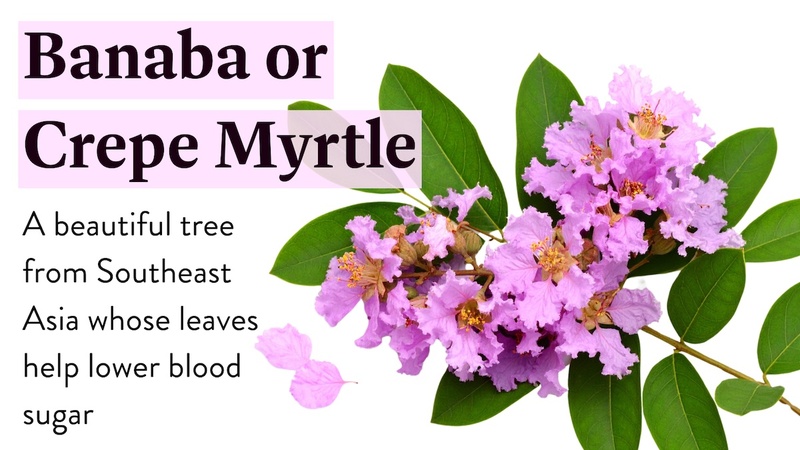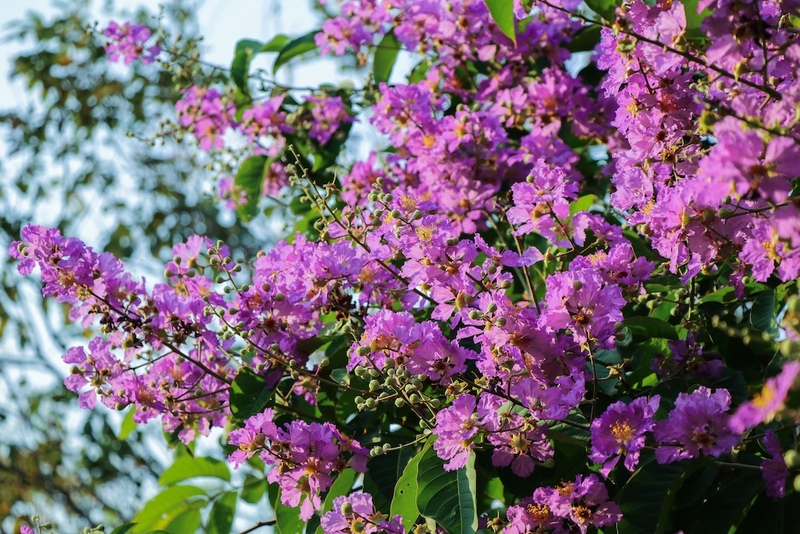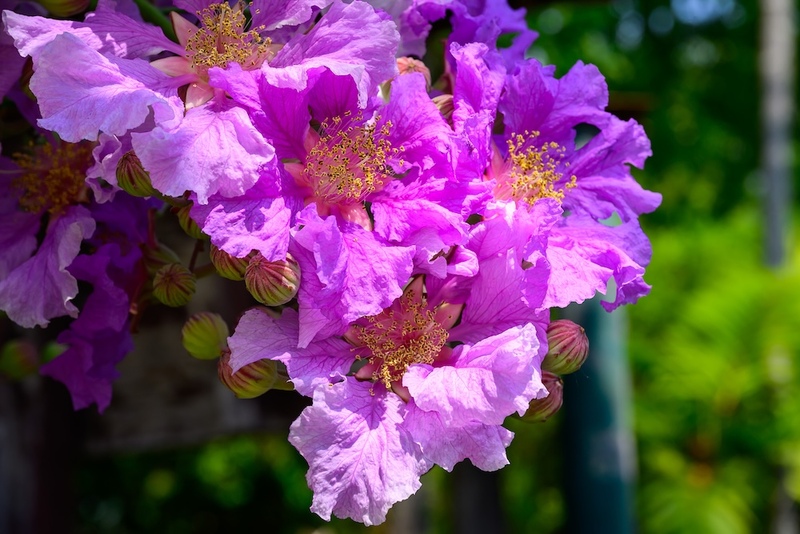
I love how I'm always discovering something new with herbalism. While exploring the area in California we're moving to, my wife pointed out some trees with red or pinkish-red blossoms, telling me how much she likes them. So, when we got home we did a little research and figured out that the tree is giant crape myrtle (Lagerstroemia speciosa). Coincidentally, the following morning, while writing about a formula for blood sugar regulation, I discovered that one of the ingredients, banaba, is also known as crape myrtle. This felt like a message that I should do a little more research and write about the plant.
Banaba is native to tropical Southeast Asia. Various parts of the plant have been used for herbal medicine in India and the Philippines. The bark has been used to treat diarrhea, while the seeds are believed to have an analgesic effect. The bark and leaves have a purgative effect and the roots have astringent, stimulant, and febrifuge (fever reducing) properties.
Blood Sugar Remedy

The leaves are the most popular part of crepe myrtle currently used in modern Western herbalism. Their popularity is due to their ability to reduce blood sugar levels, which is backed by a variety of scientific studies.
One of the compounds responsible for this is corosolic acid, which enhances glucose uptake and inhibits alpha-glucosidase, an enzyme that digests carbohydrates. Other compounds in the leaves also help to overcome insulin resistance in cells, thus improving glucose uptake.
Other Health Benefits
 Banaba leaves also contain a variety of antioxidant nutrients, such as phenols and flavonoids, as well as quercetin and corosolic, gallic, and ellagic acids. Like many other herbs with antioxidant compounds, banaba leaves also help to reduce inflammation. Banaba may also help to reduce cholesterol levels and the risk of blood clots, making it potentially beneficial for reducing the risk of heart disease.
Banaba leaves also contain a variety of antioxidant nutrients, such as phenols and flavonoids, as well as quercetin and corosolic, gallic, and ellagic acids. Like many other herbs with antioxidant compounds, banaba leaves also help to reduce inflammation. Banaba may also help to reduce cholesterol levels and the risk of blood clots, making it potentially beneficial for reducing the risk of heart disease.
There are also some beneficial effects for the immune system as banaba may have some antibacterial and antiviral effects. It has been used in the Philippines, for example, to treat urinary tract infections. There is also some research to suggest it has some potential anticancer benefits as well.
Using Banaba Leaf
Banaba leaf has been traditionally used as a tea. It’s also available in capsules. The typical recommendation is 32-48 milligrams of an extract standardized to contain 1% corosolic acid. I’d recommend using it as a part of a blood-sugar reducing formula.
We're planning on planting a crepe myrtle tree after we move into our new home, so, I’m looking forward to experimenting with it in a more direct way. It appears to be very safe, but you should use it with caution if you’re using it with other blood-sugar reducing medications.
Selected References
- https://www.healthline.com/nutrition/banaba-leaf
- https://www.verywellfit.com/the-benefits-of-banaba-89413
- https://healthinkwell.com/lagerstroemia-speciosa/
- https://en.wikipedia.org/wiki/Lagerstroemia_speciosa
Steven's Articles
-

-
The Uplifting Fragrance of Jasmine
Jasmine lifts depression, aids self-confidence,…
February
-

-
Reishi (Ganoderma) Mushroom
A TCM remedy for calming the shen (spirit), balancing…
-

-
Eucommia Bark
A superior tonic that promotes kidney, structural,…
January
-

-
Goldenthread, Phellodendron, and Yellow Root
Three herbal remedies containing the infection-fighting…
-

-
Teasel
A traditional herb for healing bones and joints…
-

-
Barberry and Healthy Personal Boundaries
A thorny shrub for fighting infections and supporting…
December
-

-
The Evidence for Berberine
A yellow alkaloid found in traditional infection-fighting…
-

-
The Sensible Use of Caffeinated Herbs
Kola nuts, guarana, and yerba mate and other herbs…
-

-
The Health Benefits and Problems with Coffee
This popular caffeinated beverage can be beneficial…
October
-

-
Understanding Caffeine & Cellular Adaptation
Preserving the power of caffeine's buzz and the…
September
-

-
Horseradish
A pungent spice for aiding protein metabolism…
-

-
Banaba or Crepe Myrtle
A beautiful tree from Southeast Asia whose leaves…
August
-

-
Monkeyflowers
Flower essences to help see ourselves more clearly…
-

-
Mariposa Lilies
Strengthening the bond between mother and child…
-

-
The Noble Bay Leaf
A common kitchen herb for aiding digestion and…

